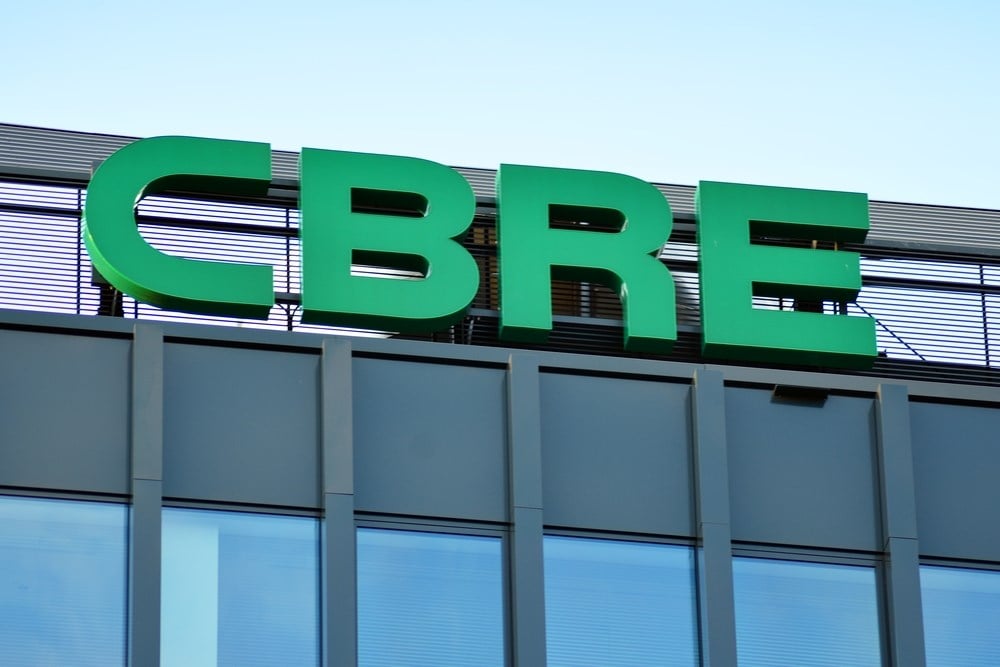Renewed Analyst Sentiment for CBRE Group Stock: Buy the Dip? CBRE shareholders are in for a new ride up, as developing industry tailwinds are set to push the company's valuation. Management and analysts agree on viewpoint
This story originally appeared on MarketBeat

Analysts at Citigroup Inc. (NYSE: C) have upgraded CBRE Group Inc. (NYSE: CBRE) stock, raising their targets from $80 per share to $90.
These renewed targets come amid the company's recent 11-cent per-share beat in earnings. As the stock bounces off its lowest book-to-value ratios since the 2008 financial crisis (excluding the sell-off effects during COVID-19), the initial momentum has set a rally in motion.
The decline in the CBRE Group stock price experienced during the first quarter of 2023 is a byproduct of the current macroeconomic environment. As the United States Federal Reserve raised interest rates to combat the elevated inflation rates the nation experienced during 2022, activity in CBRE's financing and advisory segments saw a significant contraction.
As Fed chairman Jerome Powell slows the pace of rate hikes to the point of even refraining from hiking at all, these business segments could kickstart once more.
Why the New Faith?
CBRE's management, according to its quarterly earnings presentation, also expects financial market conditions to ease based on slowed rate hikes. As a result, CBRE should deploy more capital in the next 12 months vs. the prior 12 months, pointing to elevated mergers and acquisitions (M&A) activity for the company's pipeline. Management describes these M&A opportunities as attractive, expecting them to transform the entity's current offerings.
If these deals don't go through, management has declared it will allocate this new capital toward its share repurchase program. Either way, investors will be the first to benefit.
As CBRE's financials will show, the company consistently achieves a 10% to 15% return on equity levels. This matters to investors because, as the company makes new investments such as the M&A pipeline described, the capital deployed toward these projects should provide returns within these ranges. Such earnings would fall right into the bottom line, and earnings per share can boost the company's valuation. In the case of a share repurchase, investors will end up owning a larger share of a growing pie, which also directly increases the underlying valuation of their shares.
As United States building permits have bottomed after declining for the past year and a half, there is renewed optimism in the real estate development industry. Bottoming permits and a halt in interest rate hikes could spark new activity in developments, where CBRE should step in and ride the next wave (as management rightly points to the next 12 months). As CBRE stock outperforms virtually every other operator in its peer group, there is sufficient reason to believe investors are sitting comfortably.
Outperformance, Today and Tomorrow
CBRE analyst ratings suggest that the stock carries a nearly 20% upside from today's prices, accurately reflecting the conservative version of the developing tailwinds in the industry and the broader economy. CBRE stock has also been holding its ground during the challenges during 2022, as its stock price outperformed peers by as much as 48.4% during the past twelve months. Names like Cushman & Wakefield PLC (NYSE: CWK) and Jones Lang LaSalle Inc. (NYSE: JLL) were left behind by CBRE's superior operational efficiency and offer mix.
CBRE stock currently trades at 1.1 times its book value, a valuation level not seen since the 2008 financial crisis, excluding the COVID-19 effects. Its 21.3 price-to-earnings multiple tells a similar story.
While CBRE's P/E ratio is not the lowest, it is still above those multiples commanded by its peers. When compared to the peer group, a premium to earnings could be seen by some as overvaluation. However, more often than not, a premium to earnings typically reflects investor willingness to pay a higher price for the current and future underlying earnings in the company under question.
As these new tailwinds form and analysts and management agree that a reasonable upside scenario is in the cards for CBRE shareholders, paying a higher multiple to the earnings to be realized on these trends is logical. Moreover, as real estate transactions return to their previous volumes before interest rates begin to take on their rising path, CBRE will count on its current $1.2 billion in cash available to deploy to lucrative projects.










